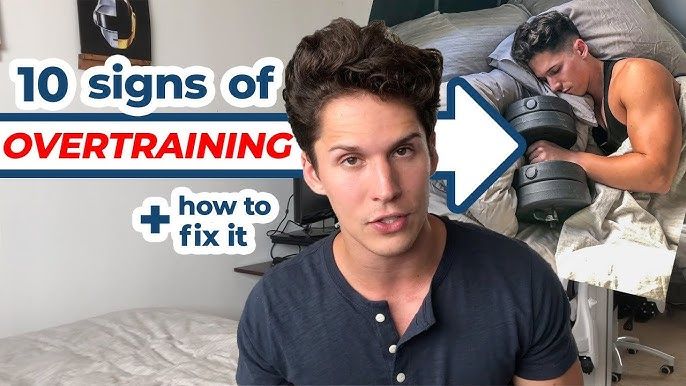In today’s fast-paced world, many of us are constantly pushing ourselves to be the best we can be. Whether it’s in our work, our relationships, or our personal goals, the drive to succeed can sometimes lead us to overextend ourselves. This is especially true when it comes to fitness. While exercise is a crucial part of a healthy lifestyle, it’s important to remember that too much of a good thing can be harmful. Overtraining is a common issue among athletes and fitness enthusiasts, and it can have serious consequences if not addressed properly. In this article, we’ll explore the signs of overtraining and discuss how to fix it.
Signs of Overtraining
One of the first signs that you may be overtraining is a lack of progress in your workouts. If you’ve been working hard in the gym but aren’t seeing any improvements in your strength, endurance, or overall fitness level, it could be a sign that you’re pushing yourself too hard. Other common signs of overtraining include:
Chronic fatigue
Irritability and mood swings
Insomnia or difficulty sleeping
Decreased appetite
Increased resting heart rate
Recurrent injuries or muscle soreness
If you’re experiencing any of these symptoms, it’s important to take a step back and reevaluate your training routine.
How to Fix Overtraining
Fortunately, there are steps you can take to address overtraining and get back on track with your fitness goals. Here are some tips to help you recover and prevent overtraining in the future:
1. Rest and Recovery
One of the most important things you can do if you suspect you’re overtraining is to give your body time to rest and recover. This means taking a break from intense workouts and allowing your muscles to repair themselves. Make sure to get plenty of sleep, as this is when your body does most of its healing and recovery.
2. Adjust Your Training Routine
If you’ve been following the same workout routine for a while, it may be time to switch things up. Try incorporating more rest days into your schedule, or focus on different muscle groups to give your body a break. You may also want to consider reducing the intensity or duration of your workouts until you start to feel better.
3. Listen to Your Body
One of the most important things you can do to prevent overtraining is to listen to your body. If you’re feeling tired, sore, or run down, don’t push through the pain. Take a break and allow your body to recover. Pay attention to the warning signs of overtraining and adjust your routine accordingly.
4. Nutrition and Hydration
Eating a balanced diet and staying hydrated are crucial for recovery and performance. Make sure you’re fueling your body with the nutrients it needs to repair and rebuild muscle tissue. Stay hydrated before, during, and after your workouts to prevent dehydration and support proper recovery.
5. Seek Professional Help
If you’re struggling to overcome overtraining on your own, don’t hesitate to seek help from a fitness professional. A personal trainer or sports medicine specialist can help you assess your training routine and make recommendations for improvement. They can also help you develop a more balanced and sustainable workout plan that helps you achieve your fitness goals without risking overtraining.
Conclusion
Overtraining is a common issue among athletes and fitness enthusiasts, but it’s important to recognize the signs and take steps to address it before it becomes a serious problem. By listening to your body, adjusting your training routine, and prioritizing rest and recovery, you can overcome overtraining and get back on track with your fitness goals. Remember, it’s important to find a balance that allows you to make progress without risking injury or burnout. With the right approach, you can enjoy the benefits of exercise while avoiding the pitfalls of overtraining.

